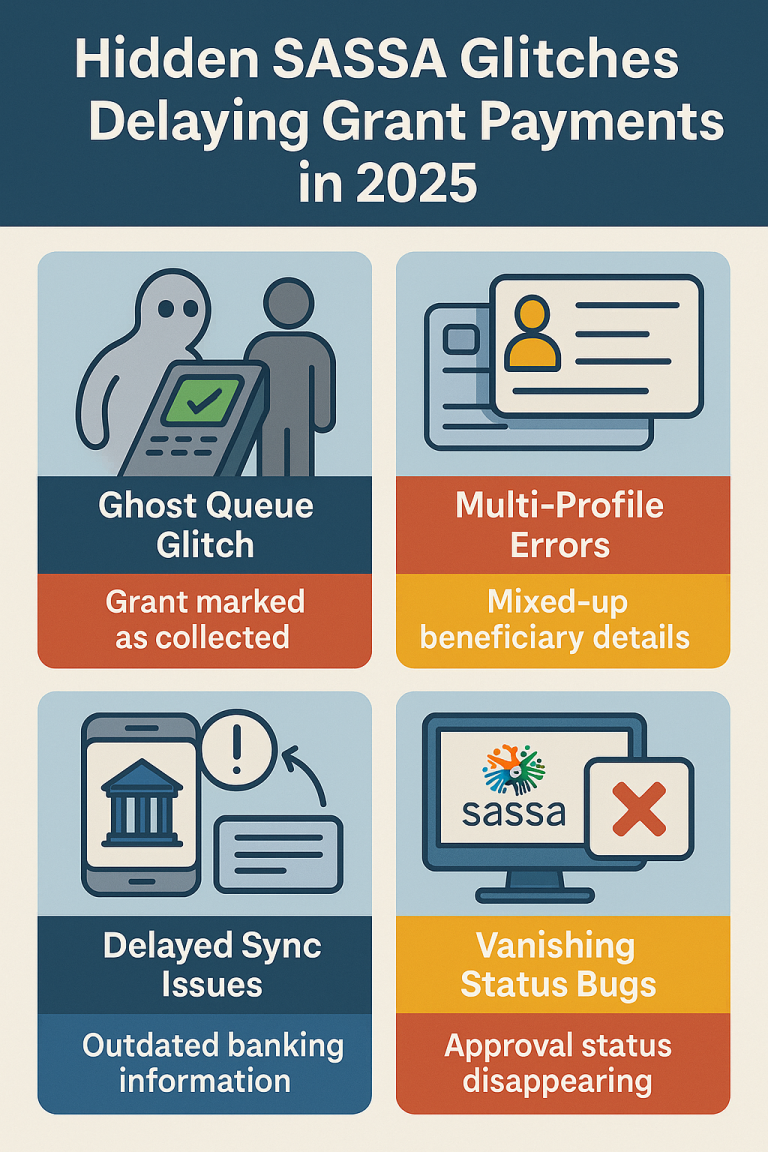Budgeting Tips for Families Surviving Only on SASSA Grants
For many South African households, SASSA grants are the only reliable source of income. Whether it’s the Child Support Grant, the Older Persons Grant, or the SRD grant, families often have to stretch a few hundred rand to cover food, transport, electricity, and school costs. Budgeting on such limited income can feel impossible but careful planning can make a difference.
See Also: SASSA Status Check
This article offers practical, realistic tips to help families survive on grants, while avoiding common pitfalls that drain money faster than expected.

Understand Your Exact Grant Income
Start with a clear picture of your household’s grant income. For example:
- Child Support Grant: R530 per child
- Older Persons Grant: R2,180 (under 75 years)
- Disability Grant: R2,180
- SRD Grant: R370
If a household receives more than one grant, add them together to see the total available income. Write this amount down — it’s the ceiling of your budget.
Install: SASSA App
Prioritise Essentials First
Separate your spending into must-haves and nice-to-haves. Essentials include:
- Food (basic staples like maize, rice, beans, vegetables).
- Electricity or fuel for cooking.
- School costs (transport, uniforms, stationery).
- Transport for medical visits or grant collection.
Only after these are covered should you consider extras like data, clothing, or entertainment.
Shop Smart and Buy in Bulk
Buying in bulk can save money, especially on staple foods. Compare prices across shops and look for monthly specials. Township spaza shops are convenient but often charge higher prices than supermarkets.
Tip: Consider pooling resources with neighbours to buy large items (like 12.5kg maize meal) and share the cost.
Track Small Daily Spending
It’s often the small, daily expenses that eat away at grant money a taxi trip here, a few rand on snacks there. Keep a notebook and write down every cent spent. At the end of the month, review it to see where you can cut back.
Avoid Credit Traps
Loan sharks target grant beneficiaries with promises of quick cash. The interest rates are so high that people often lose a large part of their grants to repayments.
Golden rule: Never give your SASSA card or PIN to anyone. If you’re desperate for credit, explore community savings groups (stokvels) with trusted members.
Check Out (For SASSA Beneficeries): SASSA Payment Dates
Save a Little, Even if It’s Small
It may seem impossible, but setting aside even R20–R50 a month builds a safety net for emergencies. Use a sealed tin at home or a trusted savings group. That small cushion prevents reliance on expensive loans when crises hit.
Plan for School Costs in Advance
Back-to-school season is a big financial stress. Spread costs across the year by buying uniforms and stationery gradually, not all at once in January.
Use Free Community Resources
- Clinics: Free healthcare reduces medical spending.
- Feeding schemes: Some schools and NGOs provide free meals.
- Libraries: Free internet and books can save on data costs for schoolchildren.
FAQs
How can I make my grant last the whole month?
Prioritise essentials, shop in bulk, and track spending daily. Even small savings add up when managed carefully.
Is it safe to join a stokvel if I only have a SASSA grant?
Yes, if it’s with trusted people. Stokvels can help save money, but never hand over your SASSA card or PIN.
Should I use loan sharks to cover emergencies?
No. Loan sharks charge extremely high interest and often take grant cards as security, leaving you worse off. Try saving small amounts monthly for emergencies instead.
Can I get financial counselling as a SASSA beneficiary?
Yes. NGOs like Black Sash and some community advice centres provide free financial guidance tailored for grant recipients.
Final Thoughts
Living on grants alone is incredibly challenging, but with planning, discipline, and community support, families can make their money go further. The key is to budget realistically, avoid credit traps, and focus on essentials. Every rand counts and careful management can help a household survive until the next payday.






